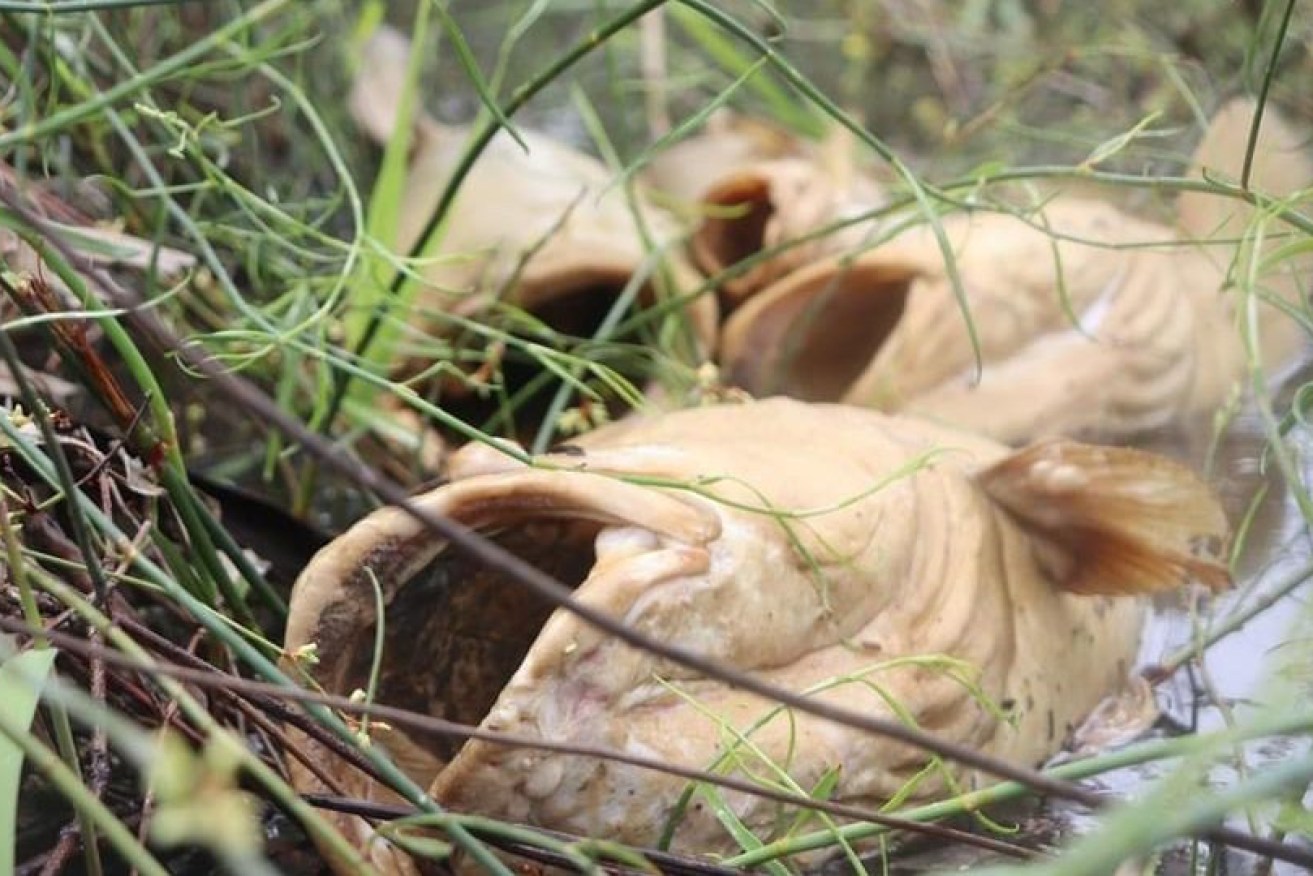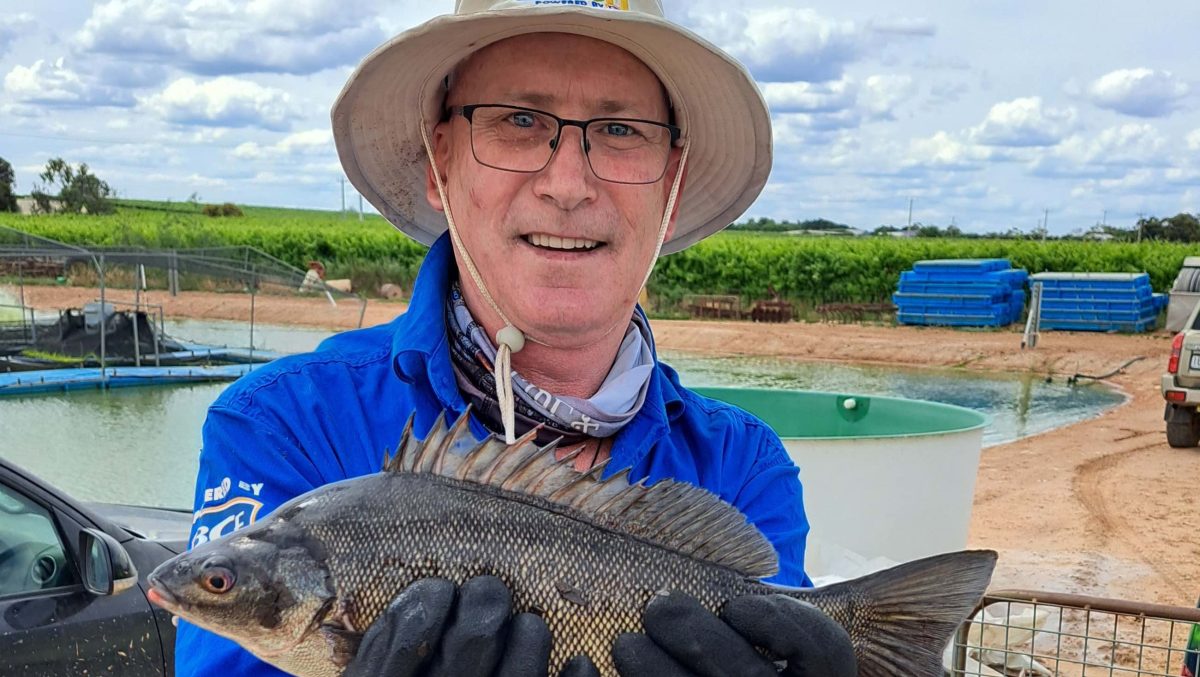SA prepares for worst as Murray Cod left gasping for air upstream
Native fish rescuers are rallying South Australian volunteers as local towns prepare for a slick of suffocating blackwater that is forcing native crayfish to crawl onto River Murray banks and killing vulnerable Murray Cod over the border.


Murray Cod are already dying in blackwater upstream near Swan Hill in the River Murray. Photo: supplied
Ozfish volunteers are already pulling struggling Murray Cod, silver perch and golden perch – also known as callop – from low oxygen water upstream around Swan Hill to safeguard their populations at approved aquaculture facilities in Victoria and New South Wales.
Isolated fish deaths are now being reported in South Australia and Ozfish leaders are discussing rescue plans with the South Australian government and local fishing groups.
Primary Industries Minister Claire Scriven said the government is ready to support Ozfish work to rescue and hold freshwater native species if blackwater events come with river flows expected to hit 165GL a day over the border in coming weeks.
“PIRSA is committed to assisting Ozfish to promptly obtain the appropriate permits where requirements are met to do so,” she said.
“PIRSA has already issued a permit for Murray Crayfish (a protected species in South Australia) that have been rescued from blackwater events in NSW and Victoria to be held in South Australia until such a time as they can be released.”
Murray Crayfish are extinct in SA, but this measure would help protect upstream populations from blackwater. The phenomenon is caused by River Murray water surging onto flood plains, collecting matter that can create hypoxic blackwater that robs fish and native crayfish of oxygen.
Ozfish Murray Darling Basin program manager Braeden Lampard, who is based 138km from Renmark over the SA border in Mildura, said he had seen blackwater killing thousands of native fish around the Victorian town of Swan Hill last week.
Lower dissolved oxygen levels already have been recorded in South Australia and warmer temperatures are likely to increase the risk of these levels falling further.
“The Ozfish volunteers have a set of rules and policies in place to determine if a native fish is stressed: if this is happening, we are taking them away from the Murray River to approved aquaculture sites,” he said.
“Fish don’t see borders, and we are trying to break down the borders and work to one community goal in saving as many fish as we can.”
Unfortunately, he said, the pest fish carp is least affected by blackwater in the River Murray as high flows begin to inundate shacks, homes and important infrastructure along its banks in SA.
“It’s always distressing to see the impacts of flood and even more so when you have seen it first hand, but the towns we are visiting, there are many in the community who are volunteering to help Ozfish,” Lampard said.
“As we’re walking along the water’s edge with landing nets, buckets and high-vis vests a lot of community members are coming up and thanking us for our help and it’s really great to see community groups come together.”

Ozfish volunteer Harry Davey rescues a silver perch around Swan Hill last week. Photo: Ozfish
Minister Scriven said PIRSA has an emergency response plan to respond to large-scale fish kill events. In this case, the department would lead coordination of clean-up operations and the disposal of fish carcasses.
“Fish kill clean-up operations will be assessed on a case-by-case basis and will aim to reduce the risk of adverse socio-economic, human health and environmental impacts,” she said.
She urged river community members to report any unusual events affecting fish along the river to contact FISHWATCH on 1800 065 522 or to report fish kills through the SA Fishing app.
RecFish chairperson Barry Brown said the 4000-strong member group was on a watching brief but was well aware of blackwater reports and ready to support efforts to protect native species.
“As soon as we hear it’s an issue for SA we would be looking to get our citizen science members involved,” Brown said.




